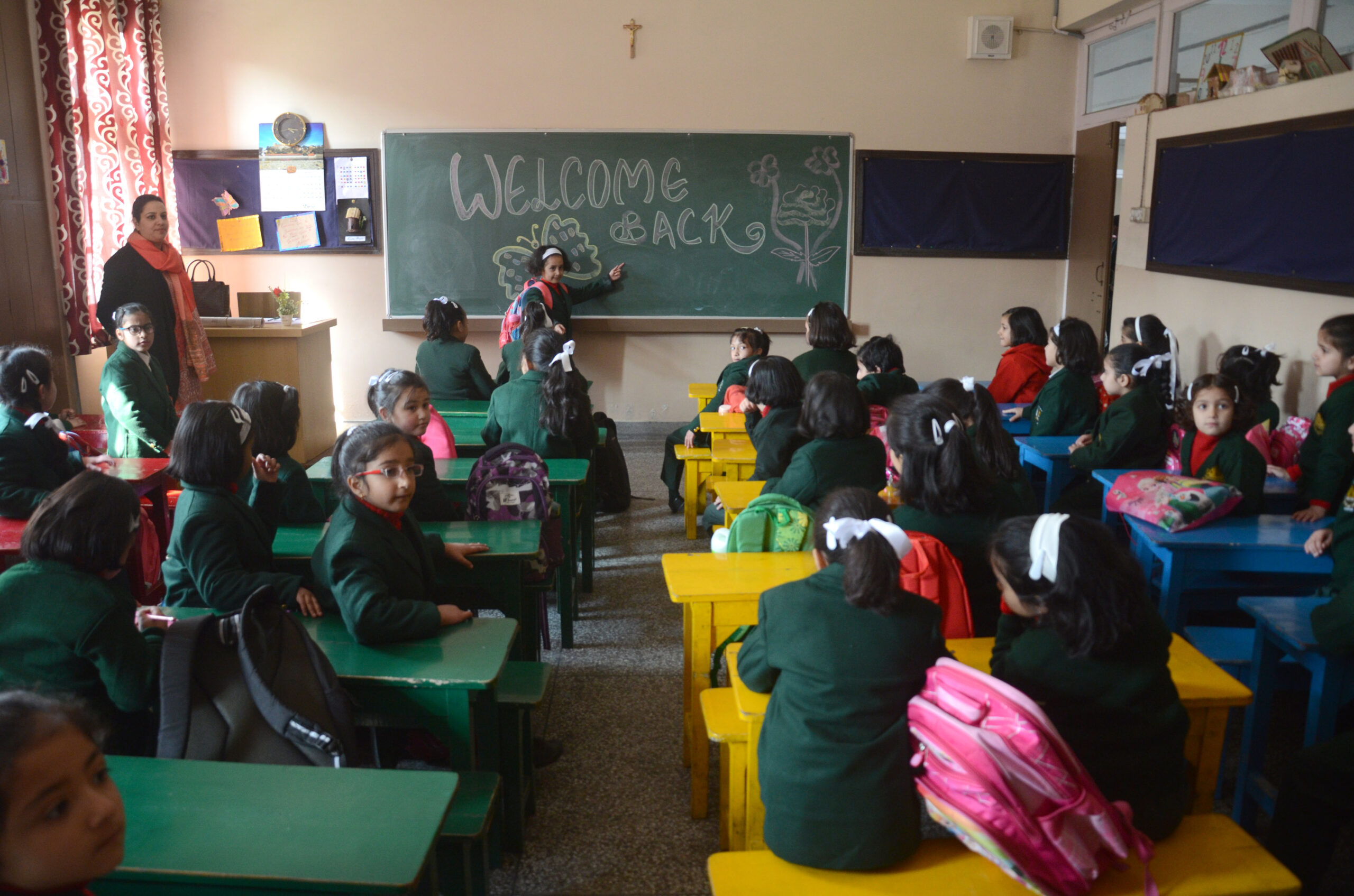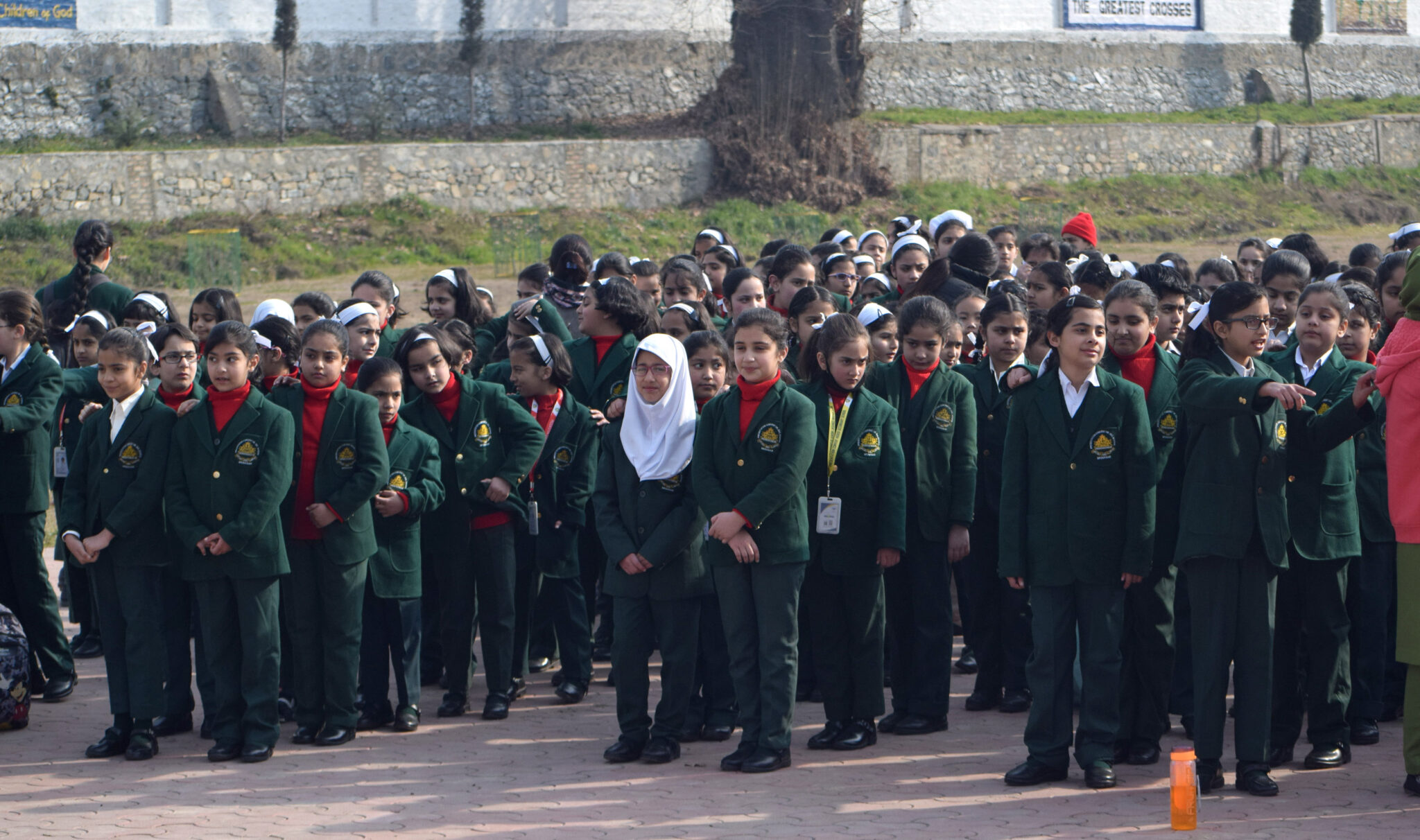As exams return to winter, educators and parents are called to foster a supportive environment that values holistic growth over scores.
By Ajaz Rashid
The annual examination season in Kashmir arrived once again, signaling a pivotal time for students and educators across the region. This year, however, the academic schedule underwent a significant transformation. The long-standing tradition of conducting examinations in March was reversed, with the session rescheduled to November-December. This shift marked a return to the region’s traditional academic calendar, a change implemented after extensive deliberation on the challenges posed by the harsh winter weather and its impact on students.
The decision to revert to the November examination schedule brought both relief and renewed debate. While the adjustment aimed to alleviate some of the logistical and physical hardships students endure during the winter months, it also reignited discussions about the broader examination system and its implications for the youth in the Kashmir valley.
Examinations, universally acknowledged as critical milestones in a student’s academic journey, evoke a complex mix of emotions—excitement for achievement and anxiety about performance. For students in Kashmir, these assessments hold particular weight. They not only determine academic progression but also carry the heavy expectations of parents, teachers, and society at large. The pursuit of high marks remains deeply ingrained in the region’s educational culture, with academic performance often viewed as the ultimate measure of a student’s potential and success.
This marks-oriented approach, while fostering healthy competition in some cases, has exacerbated stress levels among students. The unrelenting pressure to outperform peers can take a toll on mental well-being, leading to anxiety, burnout, and, in extreme cases, tragic consequences. This stress is further compounded by the region’s unique climatic conditions. During winter, students face severe cold, insufficient heating in classrooms and homes, and limited access to study resources. These physical challenges add another layer of difficulty to an already demanding examination period.
The introduction of the National Education Policy (NEP) 2020 has offered a glimmer of hope for reforming the education system. The policy advocates for a shift away from rote learning and emphasizes holistic development, skill acquisition, and creativity alongside academic achievement. It calls for a more inclusive and supportive evaluation framework that considers a student’s overall growth rather than relying solely on examination scores. However, the deeply ingrained culture in Kashmir continues to prioritize marks above all else, limiting the implementation of these progressive ideas.
To truly support students, it is imperative for parents and educators to broaden their perspectives. Academic excellence, while important, is not the sole indicator of a student’s potential. Extracurricular activities, co-curricular engagements, and personal development are equally vital. Skills such as critical thinking, problem-solving, leadership, and creativity should be nurtured alongside traditional academic knowledge to equip students for the challenges of the modern world.
Acknowledging the unique challenges faced by students in Kashmir is essential. The region’s harsh winters and infrastructural limitations demand a resilient and adaptive approach to education. Recently, the Director of School Education Kashmir emphasized that exposing students to these difficulties can help build resilience and adaptability—qualities that are invaluable in life. While this perspective holds merit, it is equally crucial to ensure that students are not overwhelmed by these challenges to the point of mental or physical distress. A balanced approach is necessary, one that prepares students for the realities of their environment while providing adequate support and resources.
The role of educators, parents, and the community in this context cannot be overstated. They must collectively strive to create an environment where students feel encouraged, supported, and motivated. The annual examination season should not be characterized by fear and anxiety but rather by opportunities for growth, learning, and self-reflection. By adopting a student-centered approach, the education system can help mitigate the pressure associated with exams and transform them into a more enriching experience.
The ongoing examination season in Kashmir presents an opportunity for systemic evolution. By embracing the principles outlined in the NEP 2020 and fostering a culture that values holistic development, the region can cultivate a generation of students who are academically proficient, emotionally resilient, and well-rounded individuals. The ultimate goal should be to move beyond measuring success through exam scores alone and instead focus on nurturing each student’s unique abilities and potential. By creating a supportive and stress-free educational environment, we can empower students to thrive and achieve success in all aspects of life.


Leave a Reply